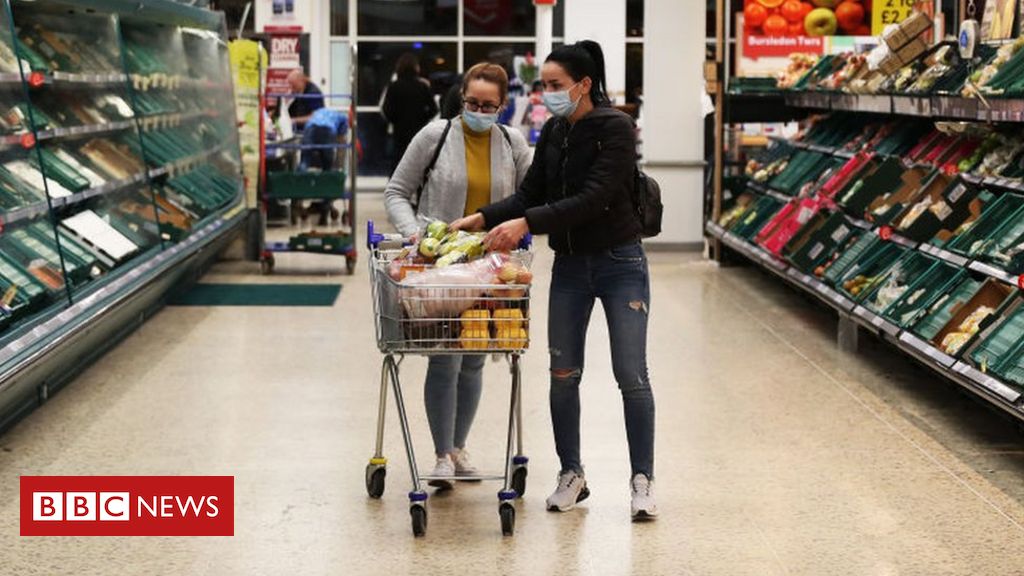Supermarket giant Tesco has seen first-half profits rise by more than a quarter as customers bought more food during the pandemic and online orders doubled.
Pre-tax profit for the 26 weeks to 29 August was £551m, 28.7% up on 2019.
It is Tesco’s first set of results under its new chief executive, Ken Murphy, who started last week.
He replaces Dave Lewis, who had been running the UK’s biggest retailer since 2014.
With more customers turning to online shopping, Tesco more than doubled delivery capacity to 1.5 million slots a week during the first half, including serving 674,000 vulnerable customers.
While demand for food rose, clothing fared less well, with sales down 17.2%.
Like many of its rivals, Tesco was forced to overhaul its strategy in-store and online amid the coronavirus lockdown.
Mr Murphy told a conference call with journalists the first half of this year had “tested our business in ways we had never imagined”, but employees had “risen brilliantly to every challenge”.
He said he felt “very comfortable in my own skin and my ability to lead this business”.
“I’m really happy with the strategy and direction of the company,” he added. “My job is to maintain momentum in the business and deliver a fantastic Christmas.”
Tesco is in the process of selling its businesses in Thailand, Malaysia and Poland, but Mr Murphy said there was currently “no plan for further retrenchment”.
When Dave Lewis was parachuted into the top job in Tesco in 2014, the business was in crisis. Now Ken Murphy is presiding over his first set of results and Britain’s biggest retailer is doing rather well.
The business, he says, is in “great shape”. But his job is going to be far from easy.
He’s got to steer Tesco through the ongoing Covid-19 crisis during the key festive trading period. Then there’s the impact of a potential no-deal Brexit looming on the horizon.
And as the job losses start to mount, shoppers’ budgets will be coming under increasing pressure. The battle for our wallets is set to become even more intense.
Finally, now that Tesco’s turnaround is complete, Mr Murphy will have to focus in the longer term on how to grow the business. A new chapter begins.
Operating profit figures told a different story, however, falling 15.6% to £1.037bn. One of the items dragging down the balance sheet was Tesco Bank, which made a loss of £155m.
Tesco said sales in the UK and Ireland rose 8.6% to £24.3bn, with overall revenue of £28.7bn. But it added that coronavirus-related costs had hit £533m.
UK food sales went up 9.2% during the period, the retailer said.
The supermarket said it was increasing its interim dividend by 21% to 3.2p a share.
It also named a new chief financial officer, Imran Nawaz, who is joining from Tate & Lyle. He will succeed Alan Stewart, who is retiring in April.
“In spite of these positive results, Tesco will still have concerns after its valuation dropped below Ocado,” said Julie Palmer, partner at Begbies Traynor.
And even though Dave Lewis had left “a well-oiled machine” behind him, it would not be an easy ride for Mr Murphy as the new chief executive, she added.
“Facing a pandemic, an economic recession and an exit from the EU all at once is not the ideal recipe for success in anyone’s book.
“However, add in growing competition from challenger brands such as Aldi with a new click-and-collect service, the M&S partnership with Ocado and the looming juggernaut of Amazon entering the field of play, and getting through this period with its position intact will be no mean feat.”

